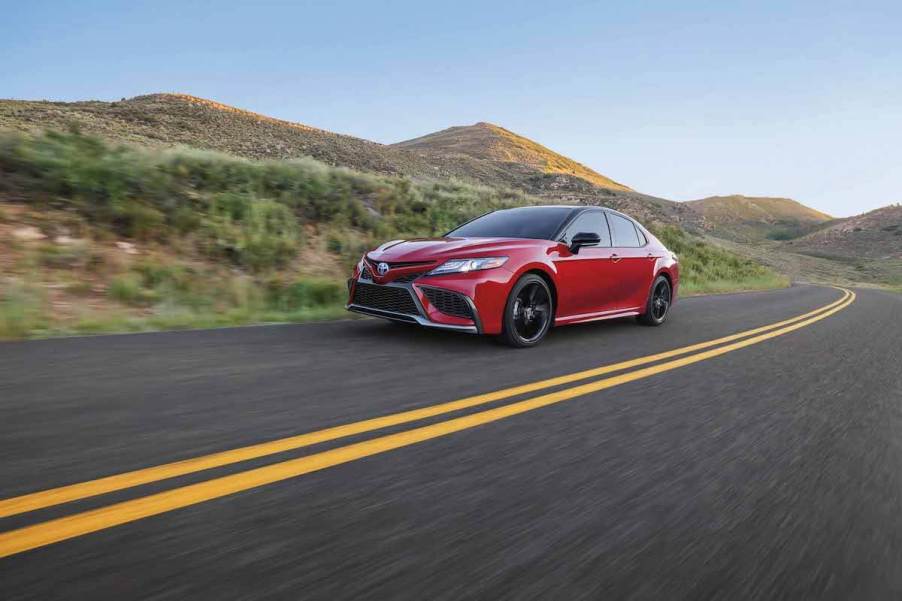
7 Challenges of Hybrid Car Ownership
Owning a hybrid car is an excellent way to save gas and help the environment. But is it, really? There are plenty of advantages to driving a hybrid car every day. However, there are also some downsides as well. Check out these seven challenges of hybrid car ownership.
1.) Hybrid cars cost more than their gas-powered counterparts

Hybrid cars may save drivers money at the pump, but they don’t save them much at the time of purchase. When shopping for a hybrid car, some drivers may notice that the hybrid variants of many models in the market cost more than their gas-only counterparts.
For example, the 2024 Toyota Corolla starts at $21,900, but the Corolla Hybrid starts at $23,300. Additionally, the 2023 Honda CR-V starts at $29,500, and the CR-V Hybrid starts at $33,350.
We could go on, but the evidence is clear. Those purchasing a hybrid model can expect to spend $1,000 to $3,000 more for the fuel-sipping powertrain over the gas-only variant.
2.) Hybrid cars are generally weaker
Hybrid vehicles operate using a gas-powered engine mated to an electric motor. The electric motor generally provides more mid-range torque and off-the-line acceleration, but the combination can have less power overall, depending on the vehicle.
One prime example is the 2023 Toyota Corolla, powered by a 169-hp 2.0-liter engine in its gas form. However, in its hybrid form, a 138-hp, 1.8-liter four-cylinder engine mated to an electric motor powers the Corolla. It’s a much weaker platform, which equates to slower acceleration times but much better fuel efficiency – 44 mpg combined versus 35 mpg.
This isn’t always the case, however. One typical example is the 2023 Honda Accord, which produces 192 hp in its gas form and 204 hp in its hybrid form.
3.) Battery replacement is expensive

Although many hybrid cars have proven to last over 20 years without any major issues, there will come a time when their batteries need to be replaced. The cost of the battery can vary depending on the make and model, but it’s expensive nonetheless. A Toyota Prius battery can cost around $2,700, while a Camry Hybrid’s battery can cost closer to $5,000.
4.) Hybrid cars get better fuel economy in city driving
Drivers who do a lot of highway driving may find their hybrids using up a lot more fuel while cruising. The electric motors in hybrid powertrains are made to turn off the engine at a stop and assist the car when it’s time to accelerate. There’s plenty of fuel saving happening during this type of driving, but when the powertrain is constantly on, like during highway driving, it uses more fuel.
5.) Depreciation is higher

With the rising popularity of hybrid vehicles, it’s easy to think they have a high resale value. However, that’s not the case. Car Edge reported one example: “The (Nissan) Leaf originally sold on average for $30,000 and is now worth less than $11,000, a 65% decrease over five years – clearly, the Leaf has fallen far from the value tree, and foliage has turned into spoilage.”
Looking at the used car market, it’s not uncommon to see many hybrid cars that once retailed for over $30,000 now selling for a fraction of the price. Another example is the Ford Fusion Energi, which retailed for around $36,000 when it was new. Nowadays, it can be purchased for around $12,000 nationwide.
6.) Plug-in hybrid cars require inconvenient charging for some owners

Plug-in hybrid car owners who live in apartments or dwellings without access to a household plug will find charging it an inconvenience. During our time with the 2023 Toyota Prius Prime, we resorted to visiting a public library for a free charge on a level 2 plug. However, the relatively low charge would have had us sitting there for hours.
7.) Less brand variety when shopping for a hybrid car
Although there are plenty of hybrid vehicles in the market – with many new models debuting every year – there’s still not a wide variety of automakers producing them. For example, Mazda, Subaru, Volkswagen, and Nissan do not currently produce hybrid sedan models, which would benefit some potential buyers.
Additionally, a driving enthusiast who prefers a manual transmission would be out of luck as well. However, a Honda CR-Z could do the trick.
There are certain pitfalls to hybrid ownership
Owning a hybrid car is an excellent way to get from point A to B while saving as much fuel as possible. Although hybrid cars are better on fuel, it doesn’t mean they are better overall. Anyone looking to purchase a hybrid car in the future should consider these challenges first.



